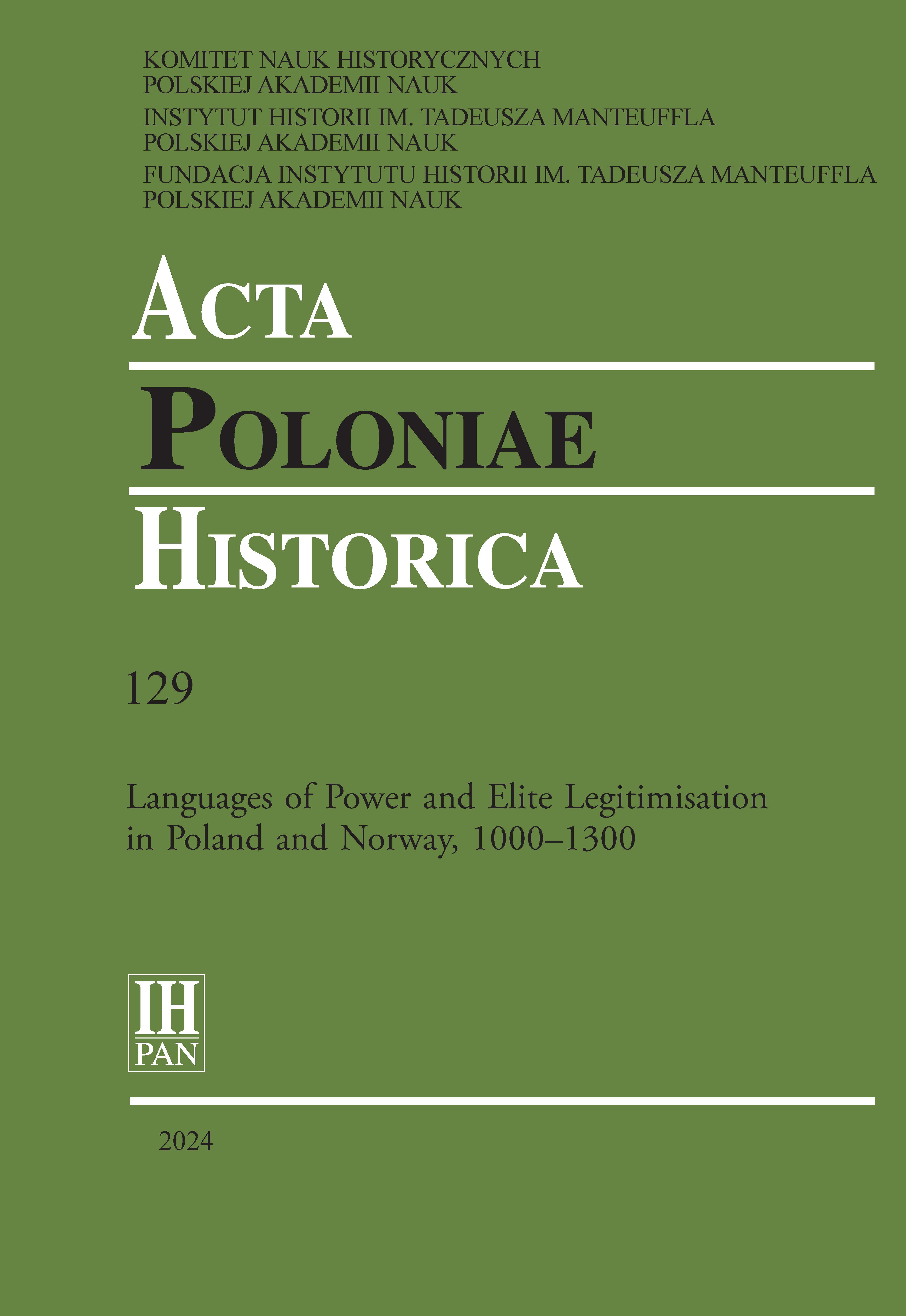Making Christian Rulership on the Peripheries of the Latin World
DOI:
https://doi.org/10.12775/APH.2024.129.03Keywords
ideology, shared rule, kingship, conflict, coronationAbstract
This article explores the introduction and consolidation of Christian rulership ideology in medieval Poland and Norway. Both realms started to be integrated into the Christian European culture around the turn of the first millennium, marked by the introduction of Christianity and the establishment of a kingdom with a Christian rulership ideology imported from Latin Europe. However, the adoption of this ideology and its repercussions were substantially different in the two realms. In both countries, introducing the new ideology increased political tensions, as its notion of undivided power made sharing power a more delicate issue. However, the way that these tensions played out in the two realms differed substantially. In Poland, the new ideology acquired a specific, non-royal dimension, and the result was that Poland was divided into several political entities. In Norway, the new rulership ideology became focused at the rank of kings and promoted sole kingship, which resulted in intense political and ideological struggles. In the long run, however, the ideology of Christian rulership led to consolidated kingdoms in both realms, albeit earlier in Norway (1240) than in Poland (1320).
References
Bagge Sverre, From Viking Stronghold to Christian Kingdom: State Formation in Norway, c. 900–1350 (København, 2010).
Bjørgo Narve, ‘Samkongedøme kontra einekongedøme: Ein analyse av norsk kjeldemateriale i historiografisk perspektiv’, Historisk tidsskrift (N), 49 (1970), 1–33.
Dalewski Zbigniew, ‘Family Business: Dynastic Power in Central Europe in the Earlier Middle Ages’, Viator, xlvi, 1 (2015), 43–59.
Dalewski Zbigniew, ‘The Piast Rulership’, in Grischa Vercamer and Dušan Zupka (eds), Rulership in Medieval East Central Europe: Power, Ritual and Legitimacy in Bohemia, Hungary and Poland (Leiden, 2022), 111–32.
Helle Knut (ed.), The Cambridge History of Scandinavia: Prehistory to 1520 (Cambridge, 2003).
Jón Viðar Sigurðsson and Hans Jacob Orning (eds), Nordic Medieval Civil Wars in a Comparative Perspective (Leiden, 2021).
Jón Viðar Sigurðsson, Viking Friendship: The Social Bond in Iceland and Norway, c. 900–1300 (Ithaca, NY, 2017).
Michałowski Roman, ‘Christianisation of Political Culture in Poland in the 10th and Early 11th Century’, in Halina Manikowska and Jaroslav Pánek (eds), Political Culture in Central Europe (10th–20th Century) (Prague, 2005), 31–46.
Michałowski Roman, ‘Christianisation of the Piast Monarchy in the 10th and 11th Centuries’, Acta Poloniae Historica, 101 (2010), 14–32.
Orning Hans Jacob, ‘Conflict and social (dis)order in Norway, c. 1030–1160’, in Kim Esmark, Lars Hermanson, Hans Jacob Orning, and Helle Vogt (eds), Disputing Strategies in Medieval Scandinavia (Leiden, 2013), 45–82.
Pauk Marcin Rafał, ‘Language of Power and Communication in the Piast Dynasty: Towards a Reappraisal of Polish Political Culture of the 12th–13th Century’, in Grischa Vercamer and Dušan Zupka (eds), Rulership in Medieval East Central Europe: Power, Ritual and Legitimacy in Bohemia, Hungary and Poland (Leiden, 2022), 178–97.
Downloads
Published
How to Cite
Issue
Section
License
Title, logo and layout of journal are reserved trademarks of APH.Stats
Number of views and downloads: 356
Number of citations: 0



